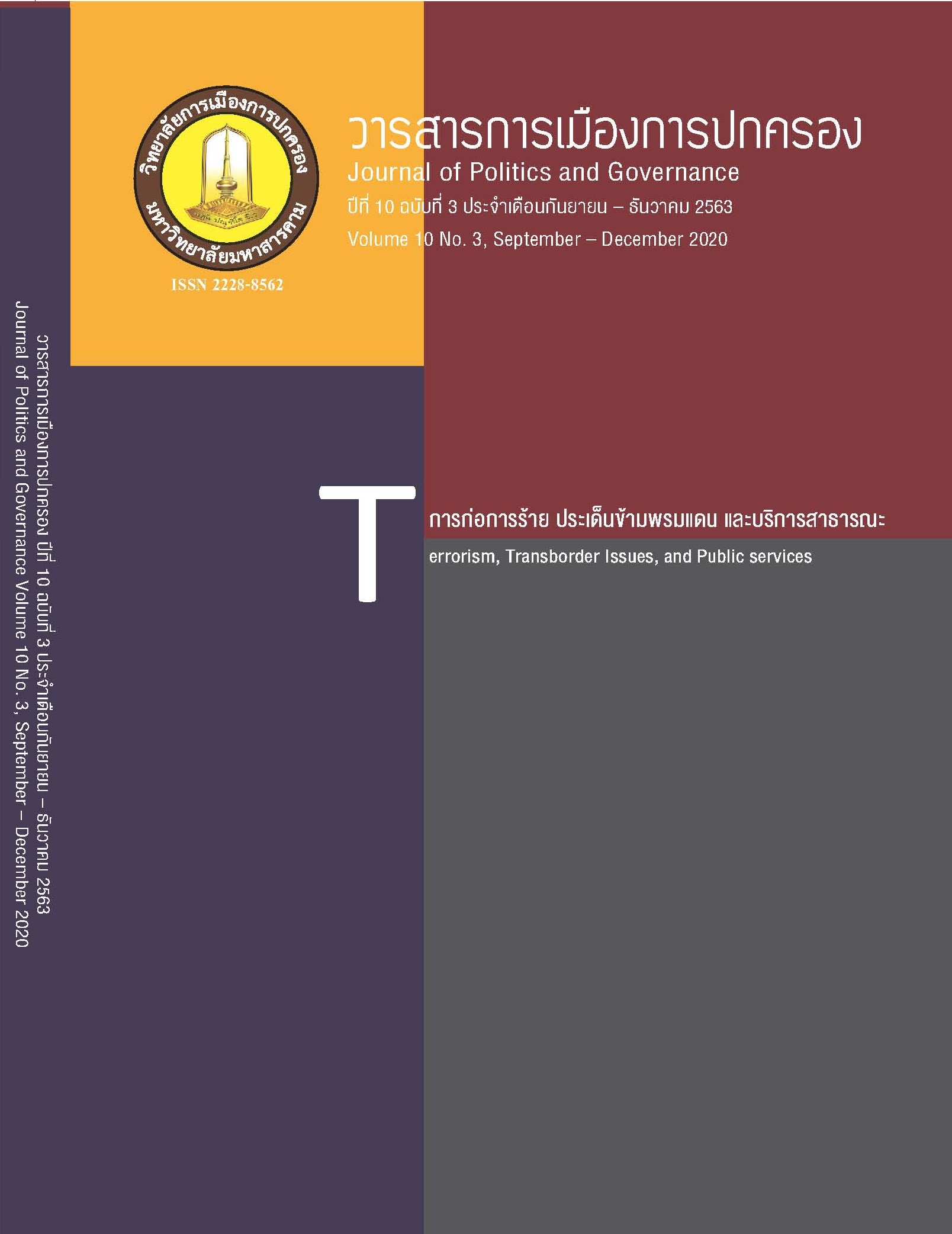Development on Ethics and Desirable Behaviors at Faculty of Education and Development Science Kasetsart University
Main Article Content
Abstract
The objectives of this research are 1) to study the desirable behavior, moral, and ethics, 2) to evaluate the behavior, moral, and ethics’ status, and 3) to improve the desirable behavior, moral, and ethics in the Faculty of Education and Development Sciences. This is a quantitative participatory action research. The research population are the administrators, faculty and staff, teachers and staff of the Laboratory School, undergrads, and Laboratory School students (N = 2,295). The research instruments include surveys and behavior observation. The data is analyzed using percentage, average, T-test and content analysis. The results are as follows: 1. The top three most desirable behavior, moral, and ethics are honesty, responsibility, and discipline from administrators, responsibility, unity, and honesty from faculty and staff, unity, responsibility, and honesty from teachers and staff of the Laboratory School, responsibility, honesty, and public mind from undergrads, and conscious mind, discipline, and unity from Laboratory School students. 2. The results from the evaluation and the improvement of the desirable behavior, moral, and ethics showed significant overall improvement from administrators group and teachers and staff of the Laboratory School group, (p < 0.01, t = 5.989) and (p < 0.01, t = 5.880) respectively. However, no significant improvement found from faculty and staff group, undergrad group, and Laboratory School student group
Article Details
References
_______. (2557). โรงเรียนคุณธรรม. กรุงเทพฯ: มูลนิธิยุวสถิรคุณ.
กนิษฐา พวงไพบูลย์. (2556). ผลของการใช้กิจกรรมสนทนาตอนเช้าที่มีต่อการพัฒนาคุณธรรมและความรู้ของนักเรียนระดับชั้นประถมศึกษาปีที่ 4 โรงเรียนสาธิตจุฬาลงกรณ์มหาวิทยาลัย ฝ่ายประถม. วารสารครุศาสตร์, 41(4), 55-68.
คำตัน วิชัยคำจร กิทธินส์ และคณะ. (2556). กลยุทธ์การบริหารการเปลี่ยนแปลงเพื่อส่งเสริมคุณธรรมของนักเรียนระดับมัธยมศึกษา. วารสารครุศาสตร์, 41(4), 99-113.
นันทรัตน์ เครืออินทร์. (2557). เอกสารประกอบการสอนวิชา จริยธรรมและจรรยาบรรณสำหรับครู. ภาควิชาครุศึกษา คณะศึกษาศาสตร์และพัฒนศาสตร์ มหาวิทยาลัยเกษตรศาสตร์.
นฤมล โอสถานุเคราะห์. (มปป.). แนวทางการพัฒนาคุณธรรมจริยธรรมของนิสิตนักศึกษาในสถาบัน อุดมศึกษา ตามพระบรมราโชวาทของพระบาทสมเด็จพระเจ้าอยู่หัว. บริหารธุรกิจมหาบัณฑิต มหาวิทยาลัยกรุงเทพ.
ปราโมทย์ โชติมงคล. (2558). เอกสารประกอบการบรรยายโรงเรียนคุณธรรม. วันที่ 30 มีนาคม 2558 ณ คณะศึกษาศาสตร์และพัฒนศาสตร์ มหาวิทยาลัยเกษตรศาสตร์.
พระบำรุง ปญฺญาพโล. (2555). ปัจจัยที่มีผลต่อการปลูกฝังคุณธรรม และจริยธรรมของนักศึกษาวิทยาลัยเทคโนโลยีสยาม เขตบางกอกใหญ่ กรุงเทพมหานคร. พุทธศาสตรมหาบัณฑิต (การบริหารการศึกษา) มหาวิทยาลัยมหาจุฬาลงกรณราชวิทยาลัย.
พระครูประโชติ จันทวิมล. (2555). การส่งเสริมคุณธรรมและจริยธรรมนักเรียนโรงเรียนนวมินทราชินูทิศหอวัง นนทบุรี อำเภอปากเกร็ด จังหวัดนนทบุรี. พุทธศาสตรมหาบัณฑิต (การบริหารการศึกษา) มหาวิทยาลัยมหาจุฬาลงกรณราชวิทยาลัย.
สุชาดา นันทะไชย. (2547). จริยธรรมและจรรยาสำหรับครู. กรุงเทพฯ: ภาควิชาการศึกษา คณะศึกษาศาสตร์ มหาวิทยาลัยเกษตรศาสตร์.
เสนีย์ มีทรัพย์. (2542). คุรุธรรมนิยมในทัศนะของท่านพุทธทาสภิกขุ. ใน ความรู้คู่คุณธรรม รวมบทความเกี่ยวกับคุณธรรม จริยธรรม และการศึกษา. ไพฑูรย์ สินลารัตน์ (บรรณาธิการ). 275-283.


